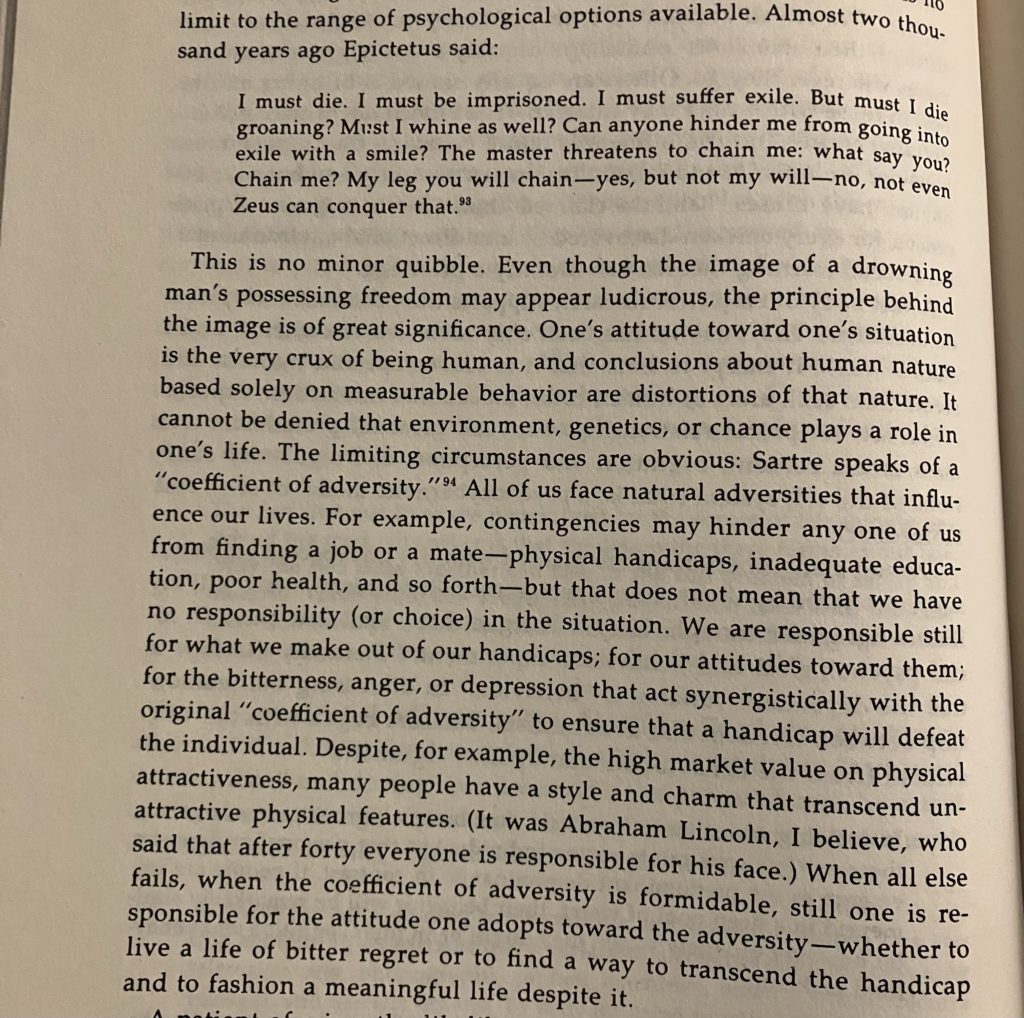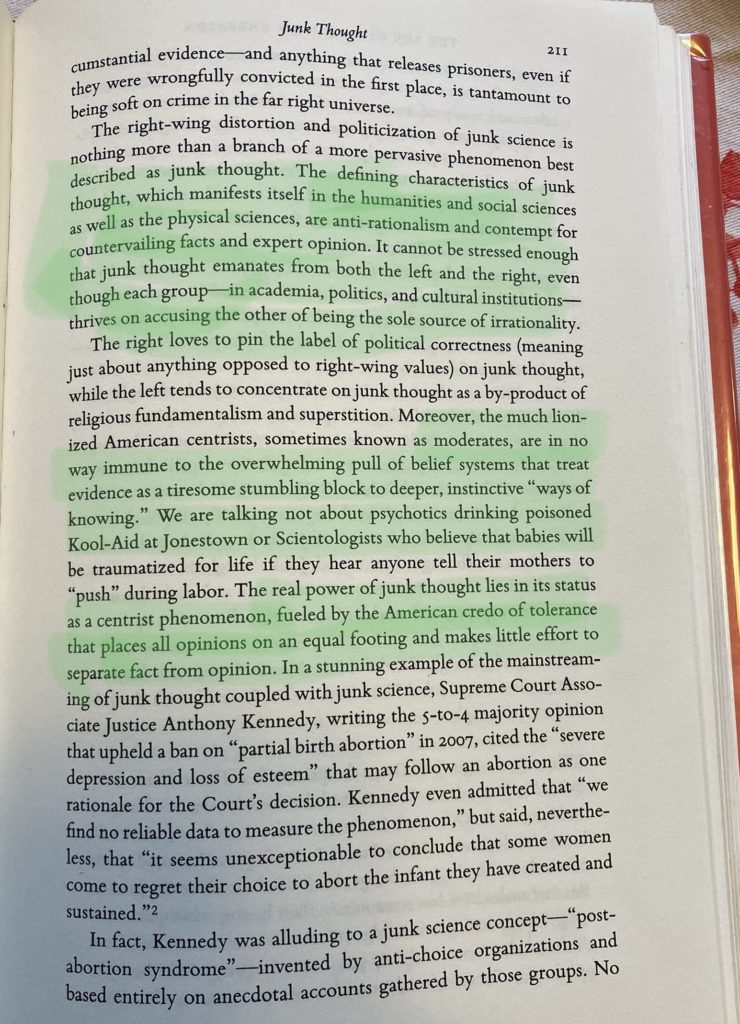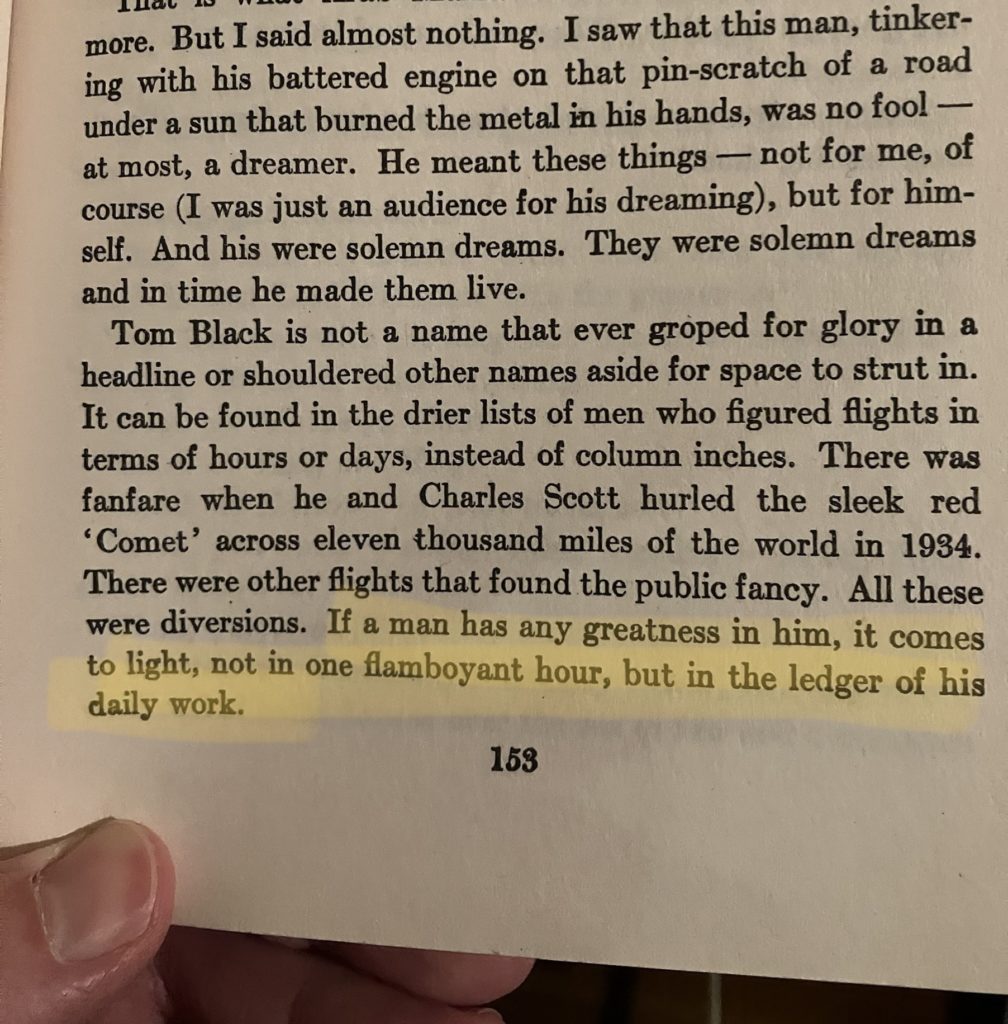
Existential Psychotherapy by Irvin Yalom

The oldest and most obscure weblog. Probably. Lovingly maintained and neglected by Shawn Kilburn.

Some books I liked that I read in 2022:
Shady Characters: the Secret Life of Punctuation, Symbols & Other Typographical Marks by Keith Houston: A book that’s tailor-made for my interests. Still, Keith Houston took a topic that might’ve been quite dull and turned it into something lively, interesting, and chockablock full of fascinating historical tidbits.
The Master of Go by Yasunari Kawabata: Reads like a novel, but it’s the recounting of the last Go match of Honinbo Shūsai. No understanding of the game of Go needed. A window into a different time and place. Deeply thought-provoking.
Termination Shock by Neal Stephenson: A rollicking ride from start to finish. I know Neal Stephenson’s not for everyone (he can really go a bit overboard with the technical detail and digressions) but I enjoyed it quite a bit. Stayed up way too late reading it a couple of nights.
By Night in Chile by Roberto Bolaño: The story of a Catholic priest’s collaboration and deliberate ignorance of the violent excesses of Pinochet’s coup and government. Extremely well-written (or well-translated, I should say).
The Guns of August by Barbara Tuchman: A detailed and astonishing recounting of the lead up to WW1 and its first month. If you like history, Tuchman is at the top of her game here. (I also heartily recommend her history of Europe’s 14th century: A Distant Mirror.)
Days of Rage: America’s Radical Underground, the FBI, and the Forgotten Age of Revolutionary Violence by Bryan Burrough: For me, this extremely even-handed history of 1960s and 70s USA helped to demystify a period of time that I have long felt pretty ignorant of.
The Blacktongue Thief by Christopher Buehlman: The protagonist reminds me a bit of the thief character in Ladyhawke. Clever and fun, this book is fun romp through an original fantasy world. A perfect travel read.
The Devil and the Dark Water by Stuart Turon: A 17th century whodunnit on a ship at sea! This one kept me guessing the whole time. If you like whodunnits, definitely check this one out.
The Rings of Saturn by WG Sebald: A nameless character walks around the English countryside and ruminates on things that he sees and his own life. Deeply satisfying. There’s some amazing writing here.
Bleak House by Charles Dickens: This is so good. Like swimming in an ocean of words. I did not expect a detective of kindness. (For another detective of kindness, see Benoit Blanc in Knives Out and the Glass Onion.) Not my favorite Dickens novel, but I really really liked it.
Aspects by John M. Ford: An unfinished novel by an exceptional writer. There’s some interpersonal nuance captured in this book that I don’t often see.
Babel: or the Necessity of Violence: an Arcane History of the Oxford Translators’ Revolution by RF Kuang: Basically, if the Harry Potter books were written by someone exceptionally well-read and interested in exploring the way that something like magic would reshape and contort a country and the world and the people in it.


I like to say, as a moderate centrist, that everyone dislikes me just a little bit.

Social Darwinism sure has “trickled down”….

Seem familiar…?

Still true. It’s wild to imagine all the maps disappearing.

It’s funny how much I think of myself as not actually reading that much (I do a lot of other stuff, too) but when I sit down to write them all down, it starts to seem like a pretty large number.
Night Heron by Adam Brookes: A solid spy/thriller set in China. Tense and exciting. I wasn’t sure where this one was going to end up. I’m always a little skeptical of books about China written by Westerners, so definitely take this one with a grain of salt.
The Midnight Library by Matt Haig: I almost certainly read this one because it had the word "library" in the title. I’m wracking my brain trying to remember a thing about it. (I read a synopsis about it.) Oh yeah, I quite liked this story about a woman living different lives, in a multiverse kind of way. Clearly inspired by Borges’ "Library of Babel" story. I don’t know why it didn’t stick with me, even though I enjoyed reading it.
Termination Shock by Neal Stephenson: My biggest problem with Stephenson’s books is that I lose too much sleep to them. I enjoyed this one more than any of his books since the Baroque Cycle. I’m sure that Stephenson’s info dump style of writing isn’t for everyone, but of you’ve enjoyed any of his other books, you’re almost certain to enjoy this one too.
The Dragon’s Path (Dagger and Coin, book 1) by Daniel Abraham: I set out to read the first of The Expanse series, but instead I somehow ended up reading this fantasy story instead. It’s got that epic fantasy flavor, but it’s more about trade and diplomacy than war and fighting monsters. I liked the sedate vibe of this book. Characters who are good at what they do or discovering what they’re good at, struggling to succeed against pretty steep odds.
By Night in Chile by Roberto Bolaño: Read this for a book club. This is a solid intro to Bolaño, because it isn’t many hundreds of pages long. The story of a Catholic priest’s slide into corruption leading up to Pinochet’s coup and after. Dark, dark stuff. Not a pleasant read, but a pretty eye-opening one.
Desperate Characters by Paula Fox: Another one that I have pretty hazy memories of… Ah, yes. An unhappy married couple have an unpleasant weekend together. The cat (who bites the wife) is the most vibrant character in this book. It’s not quite an anti-marriage novel, but I can’t imagine someone wanting to rush off and get married after reading it. Pretty mesmerizing stuff, even though it whooshed out of my head pretty quick after finishing it.
The Return of the Soldier by Rebecca West: West’s book Black Lamb and Grey Falcon is one of my favorite books, so I was delighted and surprised when this short book turned up in my free library box. An emotionally fraught book about a solider returning from war and having no memory of his wife. Very odd.
The Guns of August by Barbara W. Tuchman: The story of the first month of WWI. Powerful stuff about how (probably?) smart and capable people can think themselves into catastrophe when given enough power and opportunity. Things that stood out: I had forgotten (or never knew) just how close Germany came to winning the whole thing in the first month; the English were completely hapless and almost entirely useless in the first month of the war; people were terrified of Russia’s army, but when they got into combat they proved to be a paper tiger.
Drown by Junot Diaz: A collection of short stories. Once I looked up the titles of the stories, I remembered them. "Edison, New Jersey" and "Negocios" were the ones that stood out for me.
Foundation by Isaac Asimov: I read this when I was a kid and, after watching the recent tv series, I was curious to reread it. I had forgotten how much it feels like a set of short stories. I think it holds up pretty well though. The adaptation has a very different vibe. The book has an almost jovial quality to it that the adaptation is completely lacking. It was fun to reread it.
It’s funny how I seem to read books faster than I can easily keep track of them here, but even while reading them seems to take longer than it should.
Lau Tzu: Tao Te Ching: A Book about the Way and the Power of the Way by Ursula Le Guin: Not so much a translation as a transliteration, I guess. Le Guin read several translations of the Tao Te Ching and used that to her craft her own version. Very poetic and worthwhile. Her forward (or afterward) to The Lathe of Heaven inspired me to read this.
Artificial Condition, Rogue Protocol, *Exit Strategy, Network Effect and Fugitive Telemetry by Martha Wells: Books 2, 3, 4, 5, and 6 of the Murderbot series. Sometimes it’s lovely to finish a book in one sitting. I read all of these on individual weekend afternoons. The plots blur together a little bit in my mind, but, in general, a satisfying SF series that noodles around with questions of what it means to be human.
Shady Characters: the Secret Life of Punctuation, Symbols & Other Typographical Marks by Keith Huston: A lot of fun historical tidbits in this book about the history of writing and printing. Granted, I’m the target audience for this book, but I think pretty much anyone would find something enjoyable in it. One of those books where I imagine you could read any chapter on its own.
All of the Marvels: a Journey to the Ends of the Biggest Story Ever Told by Douglas Wolk: This guy read all of Marvel’s comics (so you don’t have to) and wrote a book about the experience. Amazing! He has a lot of great insights about Marvel from reading decades of their comics as well as some useful thoughts on how to tackle incredibly large projects.
The Master of Go by Yasunari Kawabata: Journalism as novel. I don’t know much about the game of go, but I was entranced by the writing in this book and the story of a man who was playing his last go tournament after devoting his entire life to the game. A bit heart-breaking too.
The Last Emperor by John Scalzi: The last in the trilogy. This series is sort of epic, imperial science fiction-lite. I could easily imagine a version of this story that spans seven 700-page books. A good reminder that you can tell a pretty complex and interesting story with far fewer words.
Nocilla Experience by Agustín Fernández Mallo: An experimental novel. I don’t remember much about it. I may have lost some of the patience I had when I was younger for this type of book. Still, pretty short and I read it in an afternoon, which I always enjoy.
Slaves of New York by Tama Janowitz: Stories of terrible people in 1980s NYC. Sort of funny, in a mean way.
King Bullet by Richard Kadrey: The last in the Sandman Slim series. I enjoyed this supernatural noir series, but I think Kadrey was definitely getting tired of writing books in this series. It’s short and there’s not much to it, but if you’ve gone on the whole ride, it’s a worthwhile wrap up. Funny, for a series that I think you can read piecemeal.